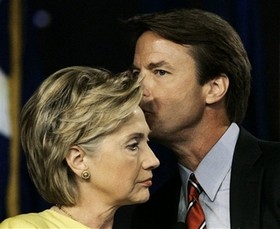
Mirrored sunglasses.
Billy clubs.
Surplus army uniforms.
That's all it takes to turn a "normal," healthy college kid into a marauding warrior, an intimidator, a menacing figure that strikes fear into the prisoners he guards.
Who were also college kids.
It doesn't take much to tip the average human over from sensitive to insensitive, from feeling to unfeeling, from human to ... no longer human.
I just finished reading
The Lucifer Effect by Phil Zimbardo. Zimbardo was the man who designed the infamous
Stanford Prison Experiment, during which two dozen Stanford students were divided into groups of "prisoners" and "guards" - selected by random - and installed in a makeshift prison. The experiment was scheduled to last for two weeks. Just two weeks. But after six days, the "experiment" had turned into chaos.

Guards tortured their prisoners, forced them to do humiliating and demeaning exercises, threw them into solitary confinement for arbitrary reasons, did everything they could do to crush the spirits of their captives.

The prisoners resisted, fought, attempted to escape, mounted hunger strikes and civil disobedience, went mad, sunk into dangerous depression, and convinced themselves they would never be released. Some were released for their own protection, for the sake of their rapidly deteriorating health - after two days. The remaining prisoners - fueled on their own paranoia and fueled by the behavior of the guards and the prison's "supervisors" - decided that the experiment was real, that they were prisoners in a genuine prison, not college students being paid $15 per day to participate in an experiment.
Everyone - the guards, the prisoners, the psychologists who videotaped and recorded and watched the "prison" - went mad.
The experiment lasted for just six days. Finally, someone - someone who had not been part of it, had not been watching and soaking in the toxic atmosphere, someone who had fresh eyes and could see clearly what was happening - blew the whistle. Christina Maslach, a graduate student (who went on to marry Zimbardo), surprised herself by insisting that the experiment was not an experiment, was not in fact moral. It was a torture chamber that had to be shut down.
Zimbardo takes the lessons learned - including his own complicity in the events of the Stanford Prison Experiment - and explores how ordinary men can turn evil, given the right circumstances and the right supervision - or lack thereof. He sees parallels in the experiment, conducted in 1971, and the recent revelations of torture, abuse, and even homicide in the Abu Ghraib Prison. In both places, a lack of responsible supervision, dehumanization of both the guards and the prisoners, and an overall atmosphere of impunity and lawlessness inspired the abuses. Evil, postulates Zimbardo, is not something that only happens to certain "bad apples." Evil can happen to any of us. Anyone can turn, given the right combination of circumstances and inner makeup. It's not about bad apples, it's about bad barrels that rot the apples within.
But the converse of this is what gives us all hope. "The banality of heroism" is a true corollary to the much-discussed banality of evil. Just as anyone can sink into the depths of madness, tormenting and dehumanizing his fellow man, anyone can rise to become a hero - one who can cry for fairness and justice, despite the behavior of those around him. Anyone can become a Gandhi, a Mandela, a
Joe Darby. We just need the right combination of circumstances and inner makeup. The right stuff, as it were, combined with the right opportunity to rise. We can all be heroes.
These issues - the nature of evil - is something that's fascinated me since I was in college. One of these days, I'll share the story of how it all started. But I've been reading books like this for a very long time - about evil, about Nazi psychology, about war and the warrior mentality, about the darkness that lives in your heart and mine. But this may be the best of them, and certainly it is the most hopeful about the nature of the human spirit. Read it.





